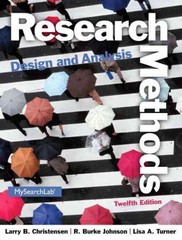Question
Question 5 (10 marks) How does China control exchange rates? Unlike many of its international trade partners (who allow the values of their currencies to
| Question 5 (10 marks) How does China control exchange rates? Unlike many of its international trade partners (who allow the values of their currencies to float freely against others), China has a strictly controlled currency policy where it regulates trading activity and tries to control daily movements of the Yuan (Chinese currency) on the foreign exchange market. China has customarily used a portion of its reserves to influence the value of its currency through foreign exchange market interventions. To strengthen the Yuan, the Chinese central bank sells foreign currency reserves (typically dollars) into the market. On the other hand, if the country wants to weaken its currency, it uses its local currency to buy foreign currency. By contrast,in 1983the newly elected Labour government, with Bob Hawke as Prime Minister and Paul Keating as the Treasurer moved the Australian dollar onto a floating exchange rate. This meant that the dollar was now valued through the supply and demand of money within world currency markets. Source: 'How does China control exchange rates?', FXCM 8 April 2016,https://www.fxcm.com/au/insights/how-does-china-control-exchange-rates/ |
1. An exchange rate is the of one country's currency in terms of another country's currency. (1 mark) |
2. An exchange rate is necessary because one country's currency is not in another country for international trade. (1 mark) |
3. The exchange rate is determined through the forces of and .(1 mark) |
4. If the Australian dollar appreciates in value, what will happen to the price of exports (from the perspective of overseas buyers)? Similarly, if the Australian dollar appreciates, what impact will it have on the price of imports (from the perspective of Australian buyers)? (1 mark) |
5. Australia has had a floating exchange rate system since 1983. Under a floating exchange rate system, if the value of exports and the inflow of money from the country is greater than the value of imports and the outflow of money from overseas, what will happen to the exchange rate? Will it appreciate or depreciate? Explain your answer by using the relationship between demand and supply and the diagrams provided in part 6 below. (3 marks) |
Step by Step Solution
There are 3 Steps involved in it
Step: 1

Get Instant Access to Expert-Tailored Solutions
See step-by-step solutions with expert insights and AI powered tools for academic success
Step: 2

Step: 3

Ace Your Homework with AI
Get the answers you need in no time with our AI-driven, step-by-step assistance
Get Started


